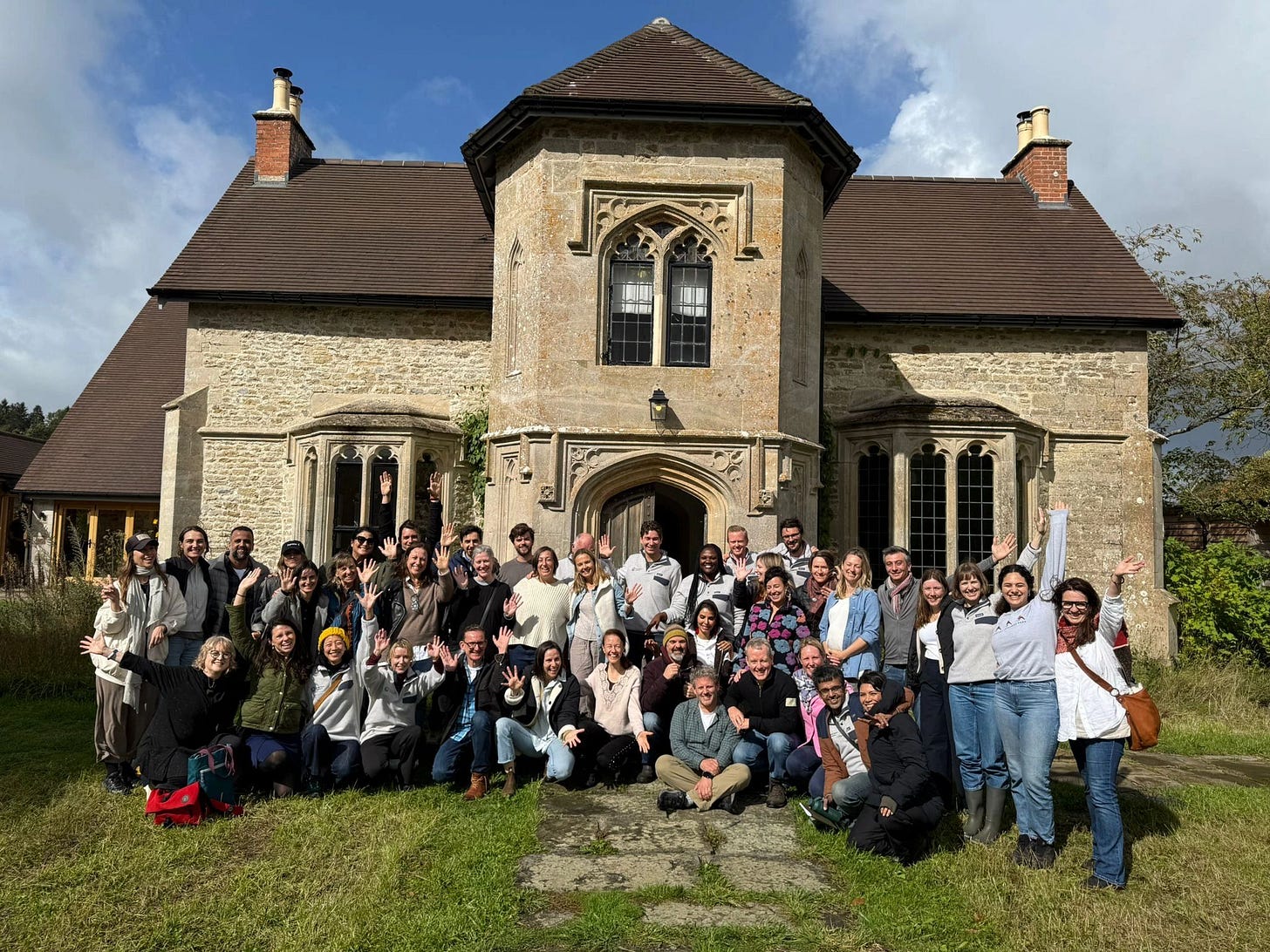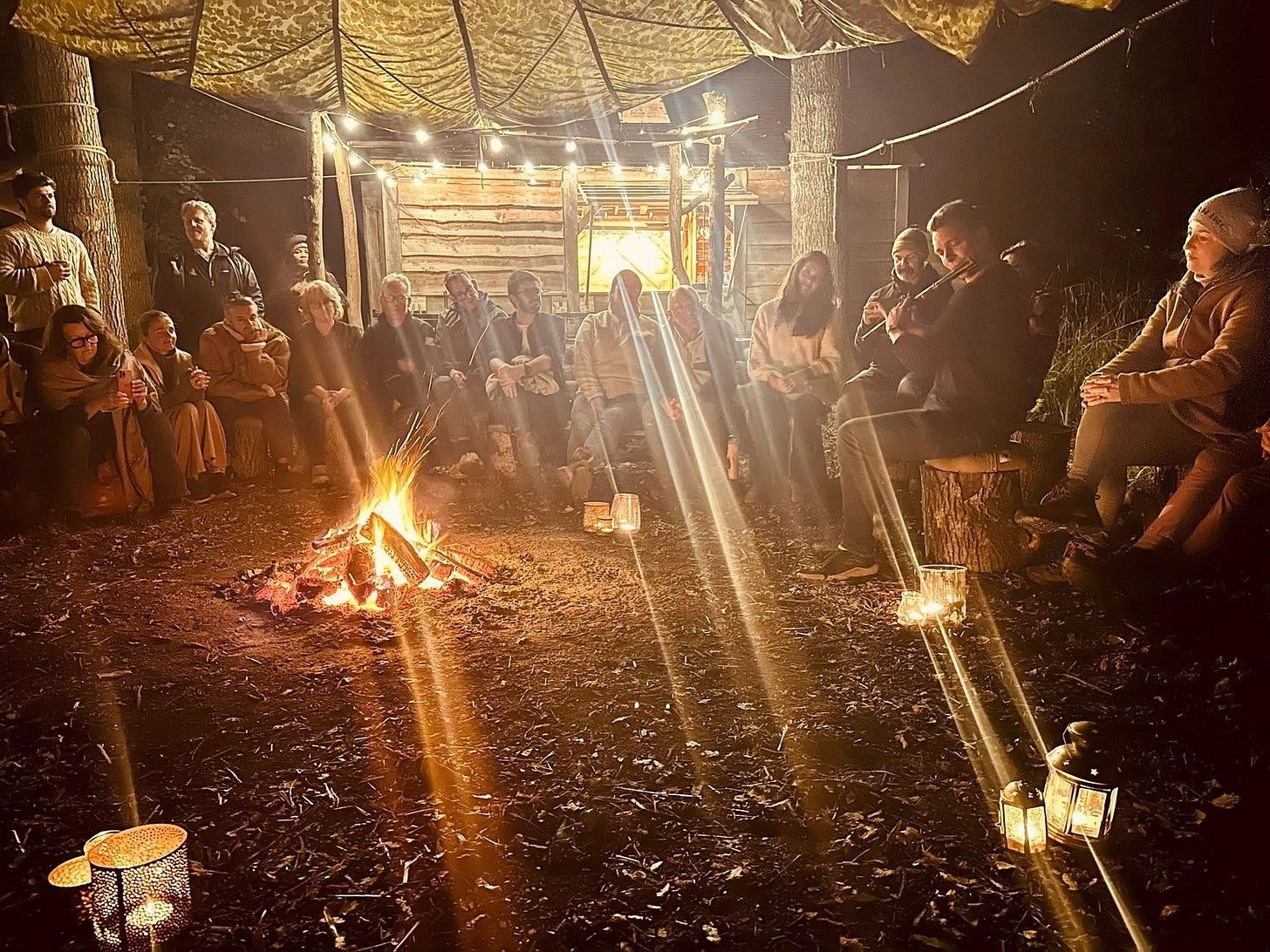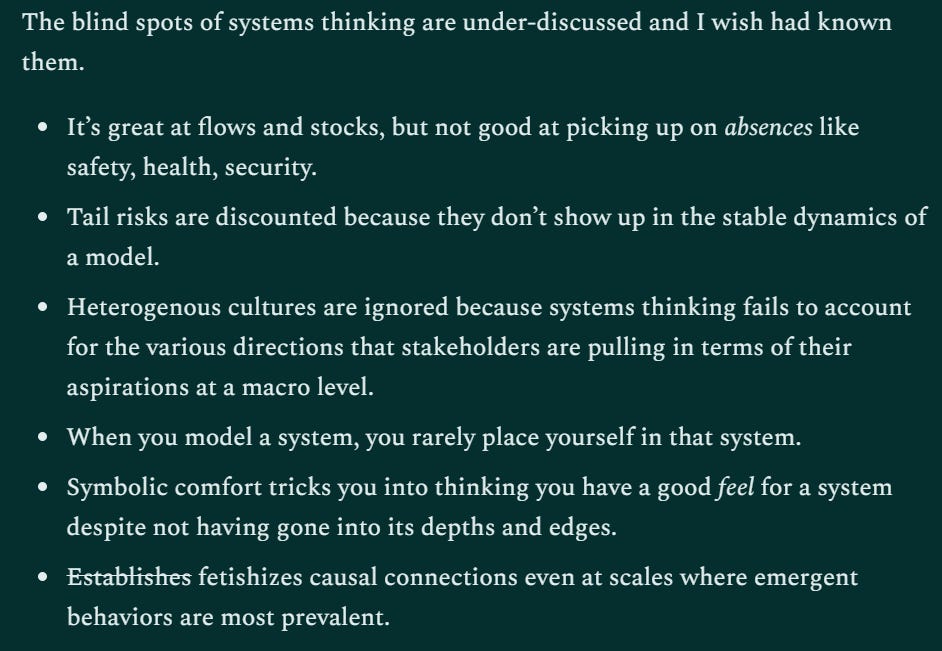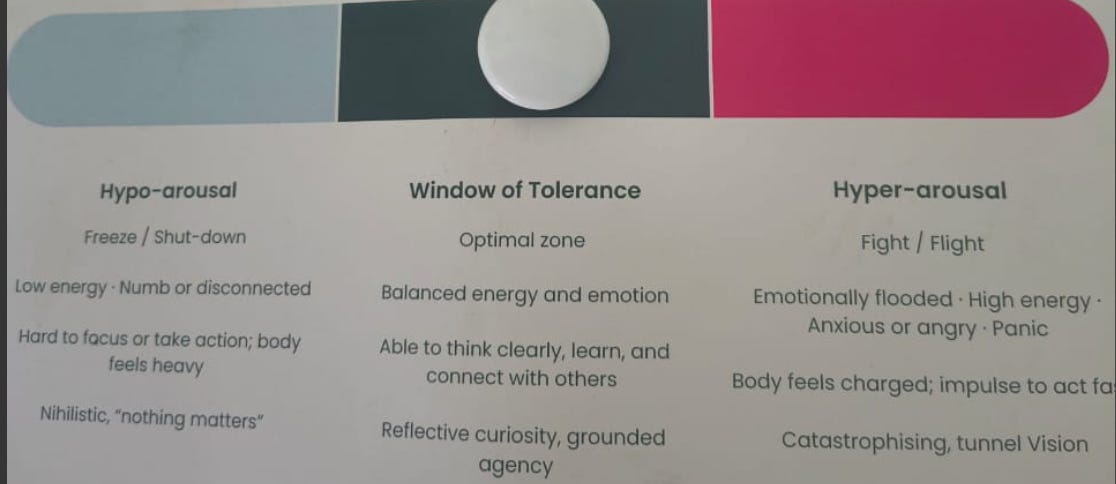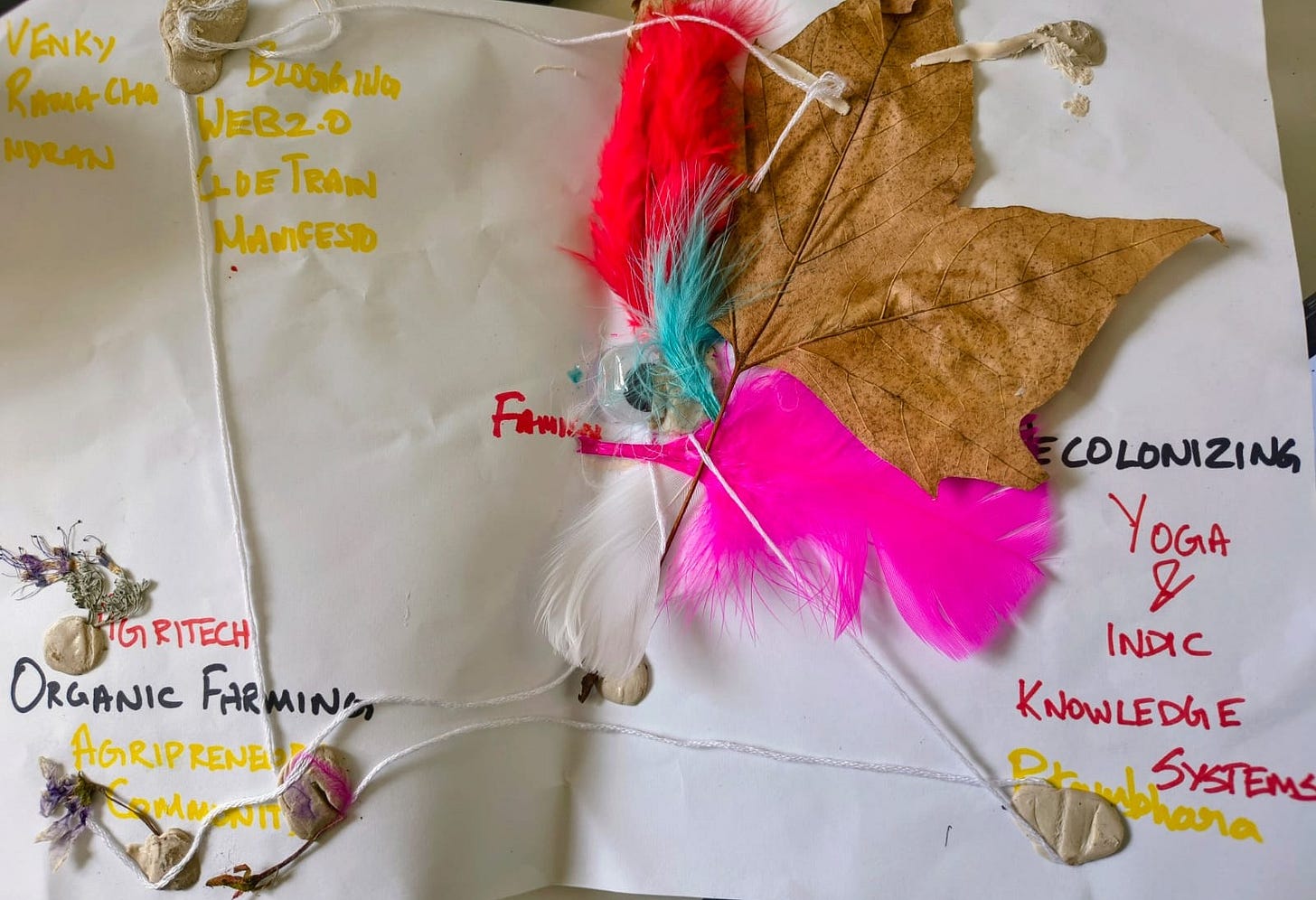Reflections from Systems Leadership Retreat
Now that I inhabit the liminal world after spending ten days away from my regular world and rhythms, surprisingly, I must admit, without a single urge to write, it feels lovingly satiated to breathe and feel alive.
Even though I am obligated to write for my subscribers every week, I am learning to trust the deeper wisdom of loving subscribers who transcend this fiduciary relationship between the writer and the subscriber. I write when I feel absolutely sure that I have something worth your attention! Mastery of Systems Leadership retreat in UK was a surreal experience in the truest spirit of the word.
It infused hope for David Ottenboroughian souls who crash-landed on the other side of optimism and para-pragmatism for techno-optimist souls who believe that the next technological revolution is round the corner.
Today, when self-termination is the most likely sane response for humanity, the best thing we could do is to instill conscious hope through deeper meditation of systems while remaining fully-cognizant of the crisis we are sleep-walking towards.
Perhaps, the elegance of the beautiful word that has come to encapsulate my tribe who share this work ethic is understated: Doomer optimism
In 1924, French poet André Breton published the Surrealist Manifesto, a radical text that declared the birth of Surrealism. Emerging from the ashes of World War I, Breton sought not only a new art movement but a new philosophy of life. He defined Surrealism as “pure psychic automatism,” the free expression of thought without the censorship of reason, morality, or aesthetics.
The manifesto argued that dreams and reality were not opposites, but two halves of a larger truth—what Breton called “surreality.” By merging dream logic with waking life, Surrealism aimed to liberate the human imagination.
For Breton, surreal meant uniting:
1) dreams + reality,
2) conscious + unconscious,
3) rationality + imagination,
into a higher form of truth he called “surreality.”The retreat also solidified a glimpse of insight that has been sitting around unnoticed in the liminal corners of my mind. We are entering the post-activism age.
At a time when activism has been weaponized towards infinite algorithmic reactivity, I got a powerful glimpse of what post-activism (in this case by a group of impact investors) looks like in an age of metacrisis or <Insert your favourite catchall phrase to explain where we are today>
“Polycrisis” (Adam Tooze) or “omnicrisis” (Adam Elkus) or “permacrisis” (John Robb) or “permaweird” (Venkatesh Rao) or metacrisis (Daniel Schmachtenberger).The retreat was designed with a beautiful underlying design principle: Our understanding of the systems are embodied and our bodies carry the frames and biases and limitations of our understanding of systems.
It’s an extremely sophisticated design choice that made me instantly feel at home and warm up to the entire experience. The culmination of the program was breaking the frames and double-binds through an intensive breathwork practice. To understand why this endeared me ineffably, it is important to understand the shadow side of systems thinking.
Systems thinking, when explored without an embodied understanding, can lead to delusions of agency.
has a deeper meditation that nails the diagnosis accurately: Systems Thinking is Brain Rot for Analysts.When you approach Systems Thinking from an embodied perspective, a lot of the aforementioned blind spots are elegantly addressed:
We learn to dissociate the Self and The System and how often the individual imagines him/her/they to be individuated, thanks to the old myths we carry about the world. When we place the Self in context with the system, we discover we are are not individuals. We are inter-beings. Thank you Thich Nhat Hanh! (I am fully aware how new-ageish that sounds!)
We discover our limitedness and potential by learning to map our personal systems better. We discover the Blood-Birth-Choices that have shaped the culture we were birthed in and the myths we carry about ourselves, others and the world at large.
We learn to distinguish between the Map and the Territory. We improve the resolution of the messiness underpinning the relationship between the macro and micro.
We learn to diagnose the level of individual tolerance we have for complexity.
We discover the limits of our knowingness while striving to be open to discover emergent behaviours.
During the retreat, I mapped my personal systems to three big, albeit entangled components: 1) Web 2.0/Blogging/Clue Train Manifesto 2) Agritech/Agripreneur Community/Organic Farming 3) Decolonizing: Yoga and Indic Knowledge Systems.
We also placed our personal systems in the context of an ancient indigenous practice: Identifying Bloodline (Ancestral Heritage and your Thousand Year History); Birth (Life Context and early life choices) and Choice (Significant Decisions that Have shaped our life).
I personally found this process deeply insightful. It helped me distill the difference between the map and the territory while placing the individual and the collective amidst narrative collapse (I don’t understand how the world works anymore) and Meaning collapse (Nothing is worth meaningful anymore) happening in our midst.
The highlight of the retreat was spending a day with
. Ben shared his moving story of personal grief when he lost his daughter to a freak accident at his Somerset farm. He shared how the grief transformed into a sublime love letter of rewilding the British countryside in memory of his daughter who loved nature and wild very deeply.Ben situated British farming policy’s context and placed Brexit in the context of British farmers bravely moving away from EU-led CACP policy which rewarded farmers for zero-sum games. Ben shared his infectious love for rewilding the British country side and his efforts to bring back the turtle dove, European cat, Eurasian beaver, wolf and lot more.
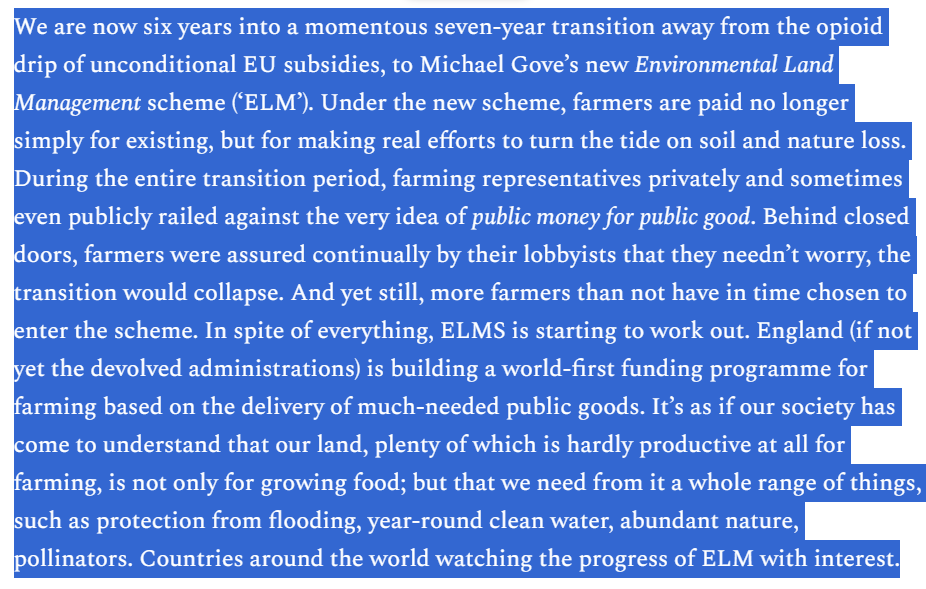
Another memorable highlight of the retreat was listening to the story of Nightingale from the British folk singer Sam Lee. Sam Lee regaled us with a brilliant audiovisual presentation that explored the beautiful relationship between culture and nature.
He shared the intricate-but-subtle relationship between dying British folk music and the loss of nature in the British country side. Sam also shared his fascinating journey of how he learned folk songs from Romani poets who were gypsies to have originally migrated from India.
Sam’s moving stories of the loss of wilderness in the British countryside led to a profound conversation with him where I shared the traumas of British colonization in India and, among other things, how it devastated the biodiversity of Nilgiri mountain ranges, thanks to tea plantation.
I also shared the devastating breakdown of indigenous wisdom in many parts of the country, thanks to East India Company’s rapacious greed. It was a poignant meeting point where the predicament of the colonizer and the colonized were bound by the same sad fate.
As an Indian who has been studying colonization and exploring Indic knowledge systems to heal its traumas, it was a deeply cathartic experience to talk about colonization with Sam. We shared our agonies and in the end, we made music in the evening with my Kanjeera instrument accompanying British folk music.
In short, I did all that made me come alive: I sang, cried and shared my experiences with lovely friends who made me feel at home. Deep gratitude to Danny and the friends from Small Giants Academy for designing this thoughtfully with a soul.
My Systems Mastery Fellowship learning journey has begun and will continue till April’26 and I plan to share my learnings as I explore the rabbit hole further.
So, what do you think?
How happy are you with today’s edition? I would love to get your candid feedback. Your feedback will be anonymous. Two questions. 1 Minute. Thanks.🙏
💗 If you like “Agribusiness Matters”, please click on Like at the bottom and share it with your friend.


